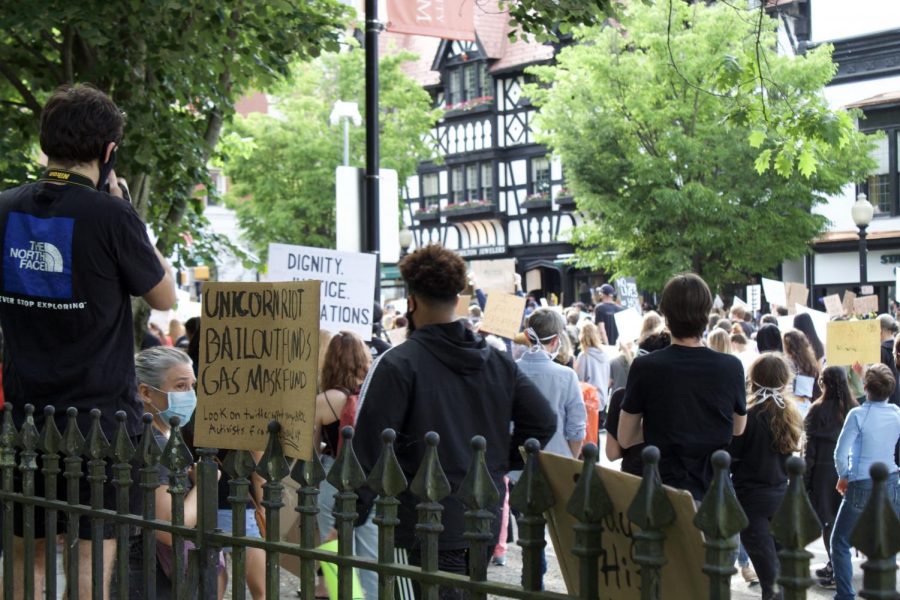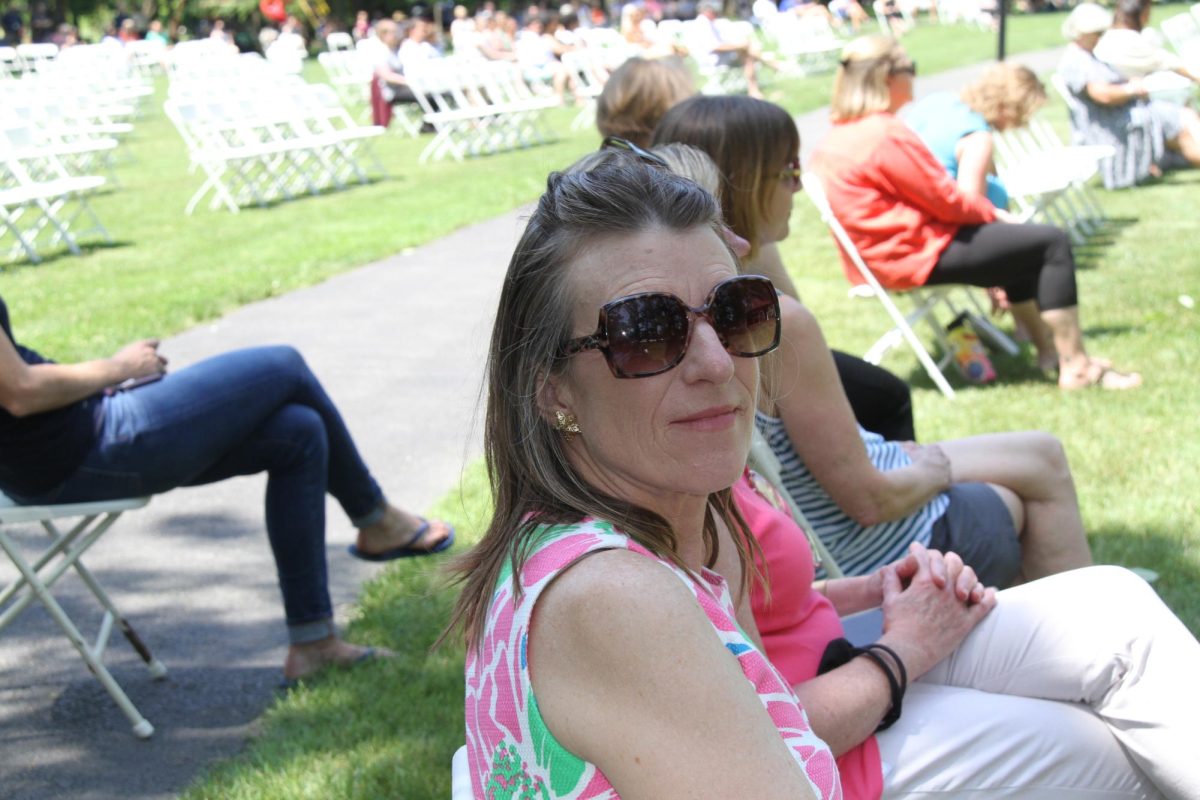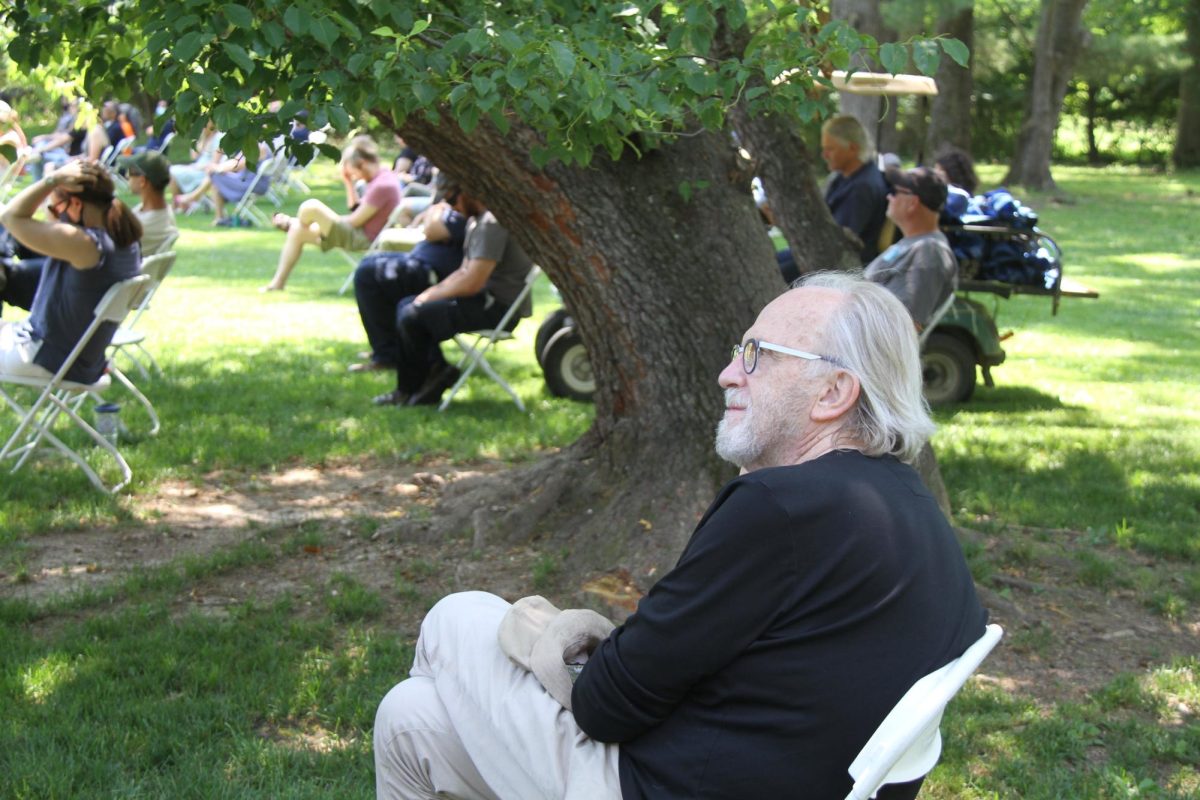Did PDS Respond Correctly to the Black Lives Matter Movement?
Protesters march through Princeton in protest for the Black Lives Matter movement in June. (Photo/Katie Jain ’21)
September 18, 2020
In the wake of the Black Lives Matter movement, PDS has pledged to combat racism and discrimination within our school community. Over the course of the past few months, the school has held several town halls and focus groups to make the voices of black students, alumni, and parents heard. Head of School Paul Stellato has also partnered with Olive Branch Educators and CEO/Founder Dr. Artis to further address anti-racism. As Director of Diversity, Equity, and Inclusion Anthony McKinley emphasized, “there are a number of members of our community who are deeply committed to embracing all levels of diversity, equity, and inclusion.” A PDS student, who wishes to stay anonymous, also shared that she admires how “PDS allowed safe spaces for parents and students alike to confront the racism they have encountered and explain what it’s like to be black at a predominantly white institution.” I believe that PDS should continue to update the community about recent changes that are happening to address diversity, equity, and inclusion. And, though PDS has taken the time to share a plan of action, much work is still left to be done. Many questions still remain: will this be enough to effectively combat racism at PDS? What do students like about PDS’s response to the Black Lives Matter movement? And how could it be better?
Mr. McKinley noted that, in order to further anti-racism, PDS will aim to “normalize courageous conversation across differences, do a complete review of the pre-K through 12 curriculum, and progress our school’s affinity groups.” In modifying the curriculum to include the experiences of Black people and other POC, Mr. McKinley plans to “work with alumni, current students, families, and faculty to provide relevant information to Dr. Wang, Mr. Park, and Mr. Rhodes, the Chairs of the Academic Program Task Force responsible for looking at our curriculum.” A review of the curriculum would allow students to learn more about cultural differences and expand their thinking of race and ethnicity.
An anonymous member of the PDS community additionally stated that “PDS should assign more black authors for English classes, especially books that [don’t include] awful stereotypes vilifying black people, [the way] Song of Solomon [does].” She added that she would also like “to see a better education of Black History in a way that doesn’t sugarcoat the brutality of slavery and Civil Rights movements.” According to Mr. McKinley, though, the school will be “specifically looking for areas where biases and blind spots may prevent the inclusion and racially/ethnically diverse experiences and perspectives.”
Senior Michelle Tucker shared that she wishes for more clarity around anti-racism changes and policies at PDS. She noted that, “I wish I knew what genuine changes are going to be made. I literally have no idea what the move is.” Consistently updating the PDS community with ongoing changes that are being made is key to removing this kind of ambiguity. Some students also believe that PDS will stop its efforts in addressing anti-racism once the Black Lives Matter movement falls out of the spotlight. Tucker adds that, “as soon as the country begins talking about something else, PDS will be the same place it has always been: a school where racism is alive and ignored.” Although PDS has taken many steps in the right direction towards addressing anti-racism, there is still a lot more work to be done.






